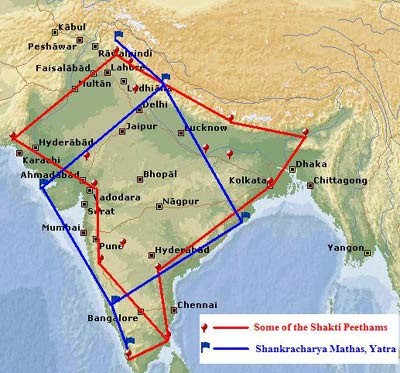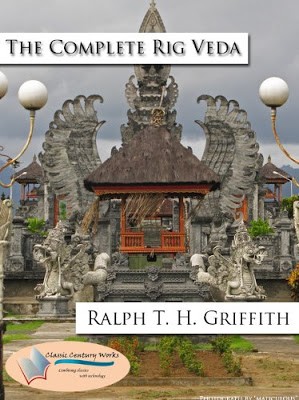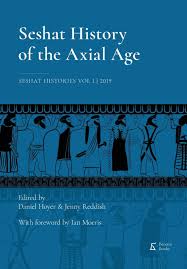This article (excepts at end of this post) is a good summary of the (relatively reasonable) Hindutvadi arguments for regarding India as one civilizational and cultural whole (at least in historical time). i.e. you don’t have to share the author’s Hindutvadi beliefs to accept a lot of his arguments for the civilizational and cultural unity of India.
Of course, nation states may come and go and even civilizational boundaries can and do change; Tunisia and Libya used to be pretty Roman and now they are pretty Arab. stuff happens. One would not be likely to lose much money betting on Xinjiang being very Chinese for centuries to come. Han migration alone will take care of that. But still, there is a civilizational and cultural unity of India and that is not such a bad basis for a nation-state… It is certainly better than many other UN member nations have these days (hint hint..)

By the way, you will notice that even “soft Hindutvadis” with relatively rational arguments continue to have serious difficulty with the Indo-European invasion/migration into India. Come on dude, man up, stop getting scared of being steamrolled by superior propaganda apparatuses, own ALL your ancestors 🙂

.
By the way, he could have said more about Indian contributions to Arab, Persian and Central Asian civilizations (while acknowledging vice versa).
Excerpts:
….
These ideas of our unity have permeated all our diverse darshanas. We have talked aboutBhakti and Vedanta and the epics of the Ramayana and the Mahabharata. But this idea of unity was not limited to particular schools. They were equally present in the tantric schools that exerted a tremendous influence on popular worship. Thus we have the legend of Shakti, whose body was carried by Shiva and cut up by Vishnu, landing in 51 places throughout the landmass of India that are now the site of the Shakti Peetham temples. The body of Shakti, or so the story goes, fell all the way from Neelayadakshi Kovil in Tamil Nadu to Vaishno Devi in Jammu, from Pavagadh in Gujarat to the Kamakshi temple in Assam and 47 other places.
Why would the story conceive of these pieces of Shakti sanctifying and falling precisely all over the landmass of India, rather than all of them falling in Tamil Nadu or Assam or Himachal (or alternately, Yunan (Greece) or China, or some supposed `Aryan homeland’ in Central Asia) unless someone had a conception of the unity of the land and civilization of Bharatavarsha? Whether these stories are actual or symbolic, represent real events or myths, it is clear from them that the idea of India existed in the minds of those that told these stories and those that listened. Together, all these stories wove and bound us together, along with migration, marriages and exchange of ideas into a culture unique in the story of mankind. A nation that was uniquely bound together in myriads of ways, yet not cast into a mono-conceptual homogeneity of language, worship, belief or practice by the diktat of a centralized church, intolerant of diversity.
And this unity as nation has been with us far before the idea of America existed. Far before the Franks had moved into northern France and the Visigoths into Spain, before the Christian Church was established and Islam was born. They have been there before Great Britain existed, before the Saxons had moved into Britannia. They have been there while empires have fallen, from when Rome was a tiny village to when it ruled an empire that rose and collapsed.
Thus the Arabs and Persians already had a conception of Hind far before the Mughal Empire was established. If we suggest that their conception of Hind was derived only from their contact with Sindh in western India, why would the British, when they landed in Bengal, form the EastIndia Company, unless the conception of the land of India (a term derived from the original Hind) was shared by the natives and the British? They used this name much before they had managed to politically hold sway over much of India, and before they educated us that no India existed before their arrival. Why would the Portuguese celebrate the discovery of a sea-route to India when Vasco de Gama had landed in Calicut in the south, if India was a creation of the British Empire?
The answer is obvious. Because the conception of India, a civilization based in the Indian sub-continent, predates the rise and fall of these empires. True, that large parts of India were under unified political rule only during certain periods of time (though these several hundreds of years are still enormous by the scale of existence of most other countries throughout the globe) such as under the Mauryas or the Mughals. But those facts serve to hide rather than reveal the truth till we understand the history of the rest of the world and realize the historic social, political and religious unity of this land. We are not merely a country; we are a civilizational country, among very few other countries on the planet.
…o there we have it. India is one of the few nations of the world with a continuity of civilization and an ancient conception of nationhood. In its religious, civilizational, cultural and linguistic continuity, it truly stands alone. This continuity was fostered by its unique geography and its resilient religious traditions. Unlike any other country on the planet, it retained these traditions despite both Islamic and Christian conquest, when most countries lost theirs and were completely converted when losing to even one of these crusading systems. The Persians fell, the civilizations of Mesopotamia and Babylon were lost, the Celtic religion largely vanished, and the mighty Aztecs were vanquished, destroyed and completely Christianized. Yet Bharata stands. It stands in our stories, our languages, our pluralism and our unity. And as long as we remember these stories, keep our languages and worship the sacred land of our ancestors, Bharata will stand. It is only if we forget these truths that Bharata will cease to be. That is precisely why the British tried to hard to make us forget them.
….
You are excluding Islamic contributions and Indian Muslims from your definition
This essay is about finding the historic roots of the Indian civilization and defining who we are as people and as a nation. We have had many migrants and invaders. While Islam has contributed to the Indian civilization, our roots are much older than when Prophet Mohammad first appeared in Arabia in the 6th century AD, so our civilization cannot be defined by Islam. Alexander the Greek came to our shores, so did the Kushans and Mongols and Persians and Turks. All of them added their contributions to our civilization as we did to theirs. The Mughal Empire helped in our political re-unification. But none of them define who we are.
We had the great Chinese civilization towards the north and the Persian civilization towards our west. Each of them influenced us as we influenced them. But because the Chinese came under Buddhist influence from India does not mean that they cease to be the Chinese civilization, an entity with a distinct cultural flavor and history from India.
Similarly, the Persians and the Turks came in many waves and contributed to Indian culture, even as we did to theirs. This does not mean that our civilization suddenly became Persian or Turkish. Some of these people settled in India, some of them brought a new religion called Islam and converted some of the existing people. All those who ultimately accept India as their homeland are accepted as Indians, for we have been a welcoming land. It would be a strange case indeed if conversion to Islam led people to deny the roots of their civilization. Do the Persians cease to be Persians, now that they are Muslims?
Islam does not define nationhood. If it did, the entire region from Saudi Arabia to Pakistan would be one country. Iran and Iraq would be one large Islamic country, rather than separate entities based on Persian and Babylonian civilizational roots. Indonesia and Malaysia would be one country.
Thus the civilizational roots of India belong to all Indians, Hindus, Muslims and Christians. Indonesian Muslims don’t trace their civilizational roots from Arabia, but from the Indonesian culture developed over the centuries. As Saeed Naqvi writes, the Ramayana ballet is performed in Indonesia by “150 namaz-saying Muslims under the shadow of Yog Jakarta’s magnificent temples for the past 27 years without a break” — Indonesians can apparently celebrate their civilizational roots without conflict of their being Muslims. There is no reason that Muslim Indians feel any differently unless led by the creation of fear or sustained demagoguery to believe otherwise.
 Thinking about the Harsh Gupta podcast and what “civilization” is. What is this identity? how does it form and cohere?
Thinking about the Harsh Gupta podcast and what “civilization” is. What is this identity? how does it form and cohere?

